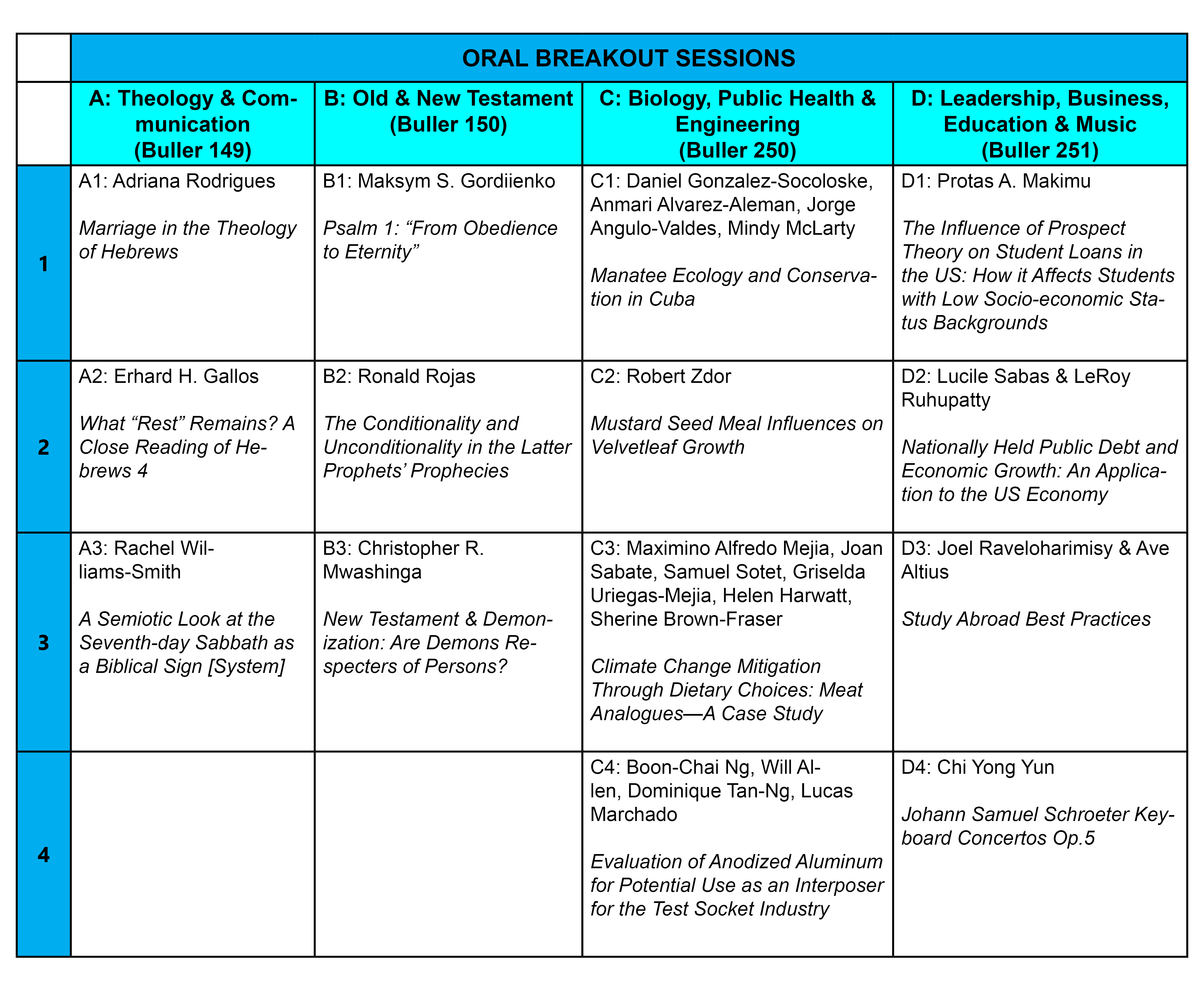
Oral Breakout Sessions
B-3 New Testament and Demonization: Are Demons Respecters of Persons?
Presenter Status
PhD Student, Department of Theology and Christian Philosophy
Preferred Session
Oral Session
Start Date
30-10-2015 3:30 PM
End Date
30-10-2015 3:45 PM
Presentation Abstract
This paper looks at demonization and how it affected people in New Testament times. The Bible presents a number of demonic cases and also shows how Jesus and his apostles responded to them in the New Testament. Cases of exorcisms as they are carefully recorded in the New Testament represent victims from various social and religious backgrounds. The goal of this paper is to demonstrate that demonization was not a problem of one particular race, religion, social status, gender or age group, but rather that it affected people from a variety of backgrounds. This has been done by briefly surveying the works of other scholars who have done research in this area and also by examining four exorcism cases in the Synoptic gospels and one in the book of Acts. After a critical analysis and reflection, the research concludes that demonization as a phenomenon presented in the New Testament was no respecter of persons—it affected people from all walks of life. The findings inform and warn contemporary people to be aware of the potentiality of demonization in the world today, regardless of where they live or what their backgrounds may be.
B-3 New Testament and Demonization: Are Demons Respecters of Persons?
This paper looks at demonization and how it affected people in New Testament times. The Bible presents a number of demonic cases and also shows how Jesus and his apostles responded to them in the New Testament. Cases of exorcisms as they are carefully recorded in the New Testament represent victims from various social and religious backgrounds. The goal of this paper is to demonstrate that demonization was not a problem of one particular race, religion, social status, gender or age group, but rather that it affected people from a variety of backgrounds. This has been done by briefly surveying the works of other scholars who have done research in this area and also by examining four exorcism cases in the Synoptic gospels and one in the book of Acts. After a critical analysis and reflection, the research concludes that demonization as a phenomenon presented in the New Testament was no respecter of persons—it affected people from all walks of life. The findings inform and warn contemporary people to be aware of the potentiality of demonization in the world today, regardless of where they live or what their backgrounds may be.


